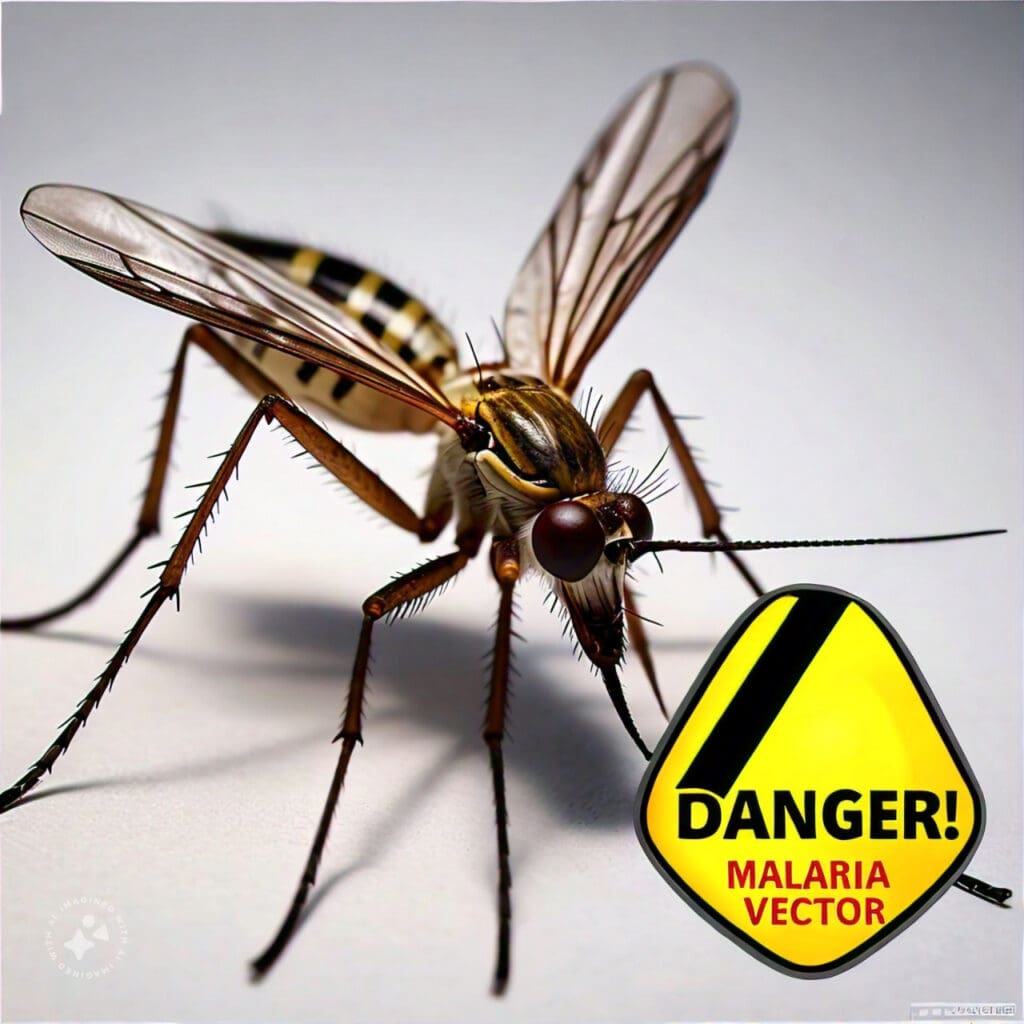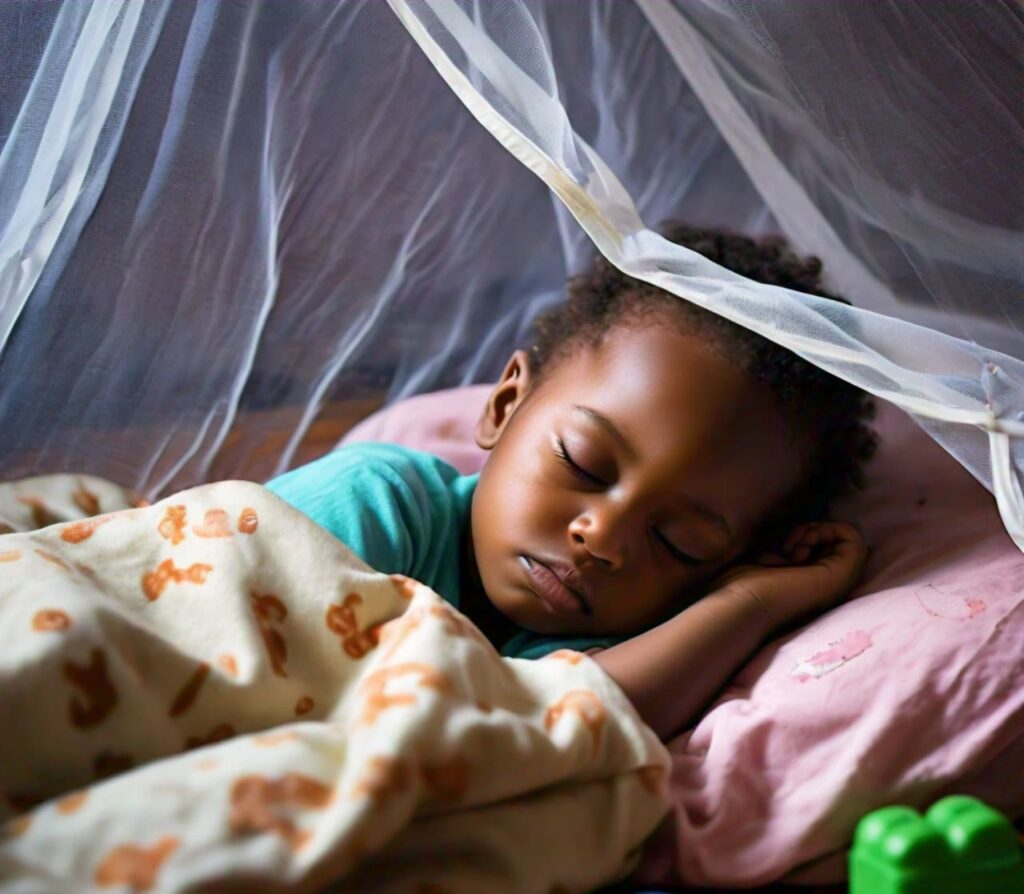Malaria remains a significant public health challenge in Nigeria, particularly during the rainy season, when mosquito breeding increases due to stagnant water.

The importance of understanding how to protect yourself and your loved ones from malaria cannot be overstated, especially during this period when malaria transmission is usually at its height.
This comprehensive guide will walk you through effective malaria prevention strategies tailored to Nigerians, with a focus on protecting children, pregnant women, travelers, and the elderly.
Why Malaria Increases During the Rainy Season
The rainy season in Nigeria creates an ideal environment for mosquitoes, particularly the Anopheles species responsible for transmitting malaria.

Stagnant water in puddles, blocked drains, and poorly managed water bodies provide breeding grounds for mosquitoes.
Additionally, increased humidity and warmth during the rainy season contribute to the rapid multiplication of these vectors.
Ways to Protect Children from Malaria
Children are particularly vulnerable to malaria, and the consequences can be severe. Protecting them involves a combination of preventive measures:

- Use of Insecticide-Treated Nets (ITNs): Ensure that children sleep under insecticide-treated nets every night. ITNs are effective in reducing mosquito bites and subsequent malaria infections.
- Proper Clothing: During the rainy season, dress your children in long-sleeved clothing and trousers, especially during the evening when mosquitoes are most active.
- Indoor Residual Spraying (IRS): Regularly spray insecticides indoors to kill mosquitoes and reduce their population. Focus on dark, cool areas where mosquitoes tend to rest.
- Environmental Management: Ensure that there are no stagnant water bodies around your home where mosquitoes can breed. Regularly clean gutters and drains to prevent water accumulation.
Malaria Prevention Tips for Pregnant Women in Nigeria
Pregnant women are another high-risk group for malaria. The disease can lead to complications such as low birth weight, preterm delivery, and even maternal death. Here are some essential tips for pregnant women during the rainy season:
- Intermittent Preventive Treatment (IPT): Pregnant women should receive intermittent preventive treatment with sulfadoxine-pyrimethamine (IPT-SP) as recommended by healthcare providers. This treatment helps prevent malaria infections during pregnancy.
- Consistent Use of ITNs: Just like for children, pregnant women should consistently sleep under ITNs to reduce the risk of mosquito bites.
- Regular Antenatal Visits: Regular check-ups during pregnancy are essential. Healthcare providers will monitor for any signs of malaria and provide appropriate treatment if needed.
- Use of Mosquito Repellents: Pregnant women can use mosquito repellents that are safe for use during pregnancy. These repellents help reduce mosquito bites when outside.
Best Mosquito Repellents for Rainy Season in Nigeria
Choosing the right mosquito repellent is crucial for effective malaria prevention. Here are some of the best mosquito repellents available in Nigeria:
- DEET-Based Repellents: DEET is a highly effective ingredient in mosquito repellents.
- Natural Repellents: For those who prefer natural options, repellents containing citronella, eucalyptus, or lemon oil are effective.
- Mosquito Coils and Vaporizers: Using mosquito coils or vaporizers can help keep mosquitoes at bay indoors.
How to Prevent Mosquito Breeding in Homes During the Rainy Season
Preventing mosquito breeding is one of the most effective ways to reduce the risk of malaria. Here are some practical steps you can take:
- Eliminate Stagnant Water: Regularly check your surroundings for stagnant water in buckets, flower pots, old tires, and blocked drains. Ensure that these are emptied or cleaned frequently.
- Use Larvicides: Larvicides are chemicals that can be applied to water bodies to kill mosquito larvae. Consider using products like Abate in areas where water cannot be drained.
- Screen Windows and Doors: Installing screens on windows and doors prevents mosquitoes from entering your home. Ensure that the screens are intact and without holes.
- Proper Waste Disposal: Dispose of waste properly to prevent it from becoming a breeding ground for mosquitoes. Keep your surroundings clean and free from litter.
Malaria Prevention Tips for Travelers to Nigeria During the Rainy Season
If you’re traveling to Nigeria during the rainy season, it’s essential to take proactive steps to protect yourself from malaria:
- Use of Prophylactic Medication: Consult your healthcare provider about taking antimalarial prophylactic medication before, during, and after your trip. Medications such as Malarone, Doxycycline, or Lariam are commonly recommended.
- Stay in Air-Conditioned Rooms: When possible, stay in air-conditioned rooms or places with screened windows and doors to minimize exposure to mosquitoes.
- Use of Repellents: Apply mosquito repellent to exposed skin and clothing. Choose a repellent with a high concentration of DEET for effective protection.
- Be Vigilant at Dusk and Dawn: Mosquitoes are most active during dusk and dawn. Minimize outdoor activities during these times or ensure you are adequately protected.
Malaria Prevention for Elderly People in Nigeria
The elderly are more susceptible to severe malaria, making prevention critical. Here are some specific tips for protecting older adults during the rainy season:
- Consistent Use of ITNs: Ensure that elderly people sleep under ITNs every night. Mosquito nets are particularly important for this vulnerable group.
- Environmental Management: Help elderly people maintain a clean and mosquito-free environment by eliminating stagnant water around their homes.
- Regular Health Checks: Encourage regular health check-ups to monitor for any signs of malaria. Early detection and treatment are crucial for preventing complications.
- Adequate Nutrition: A well-nourished immune system is better equipped to fight off infections. Ensure that the elderly have a balanced diet to support their overall health.
Additional Tips for Malaria Prevention During the Rainy Season
- Community Involvement: Engage in community clean-up campaigns to eliminate mosquito breeding sites in your neighborhood. Collective action is more effective in reducing mosquito populations.
- Educate and Raise Awareness: Spread awareness about malaria prevention in your community. Educating others about the importance of preventive measures can help reduce the incidence of malaria.
- Use of Insecticide-Treated Curtains: Consider using insecticide-treated curtains in your home to add an extra layer of protection against mosquitoes.
Finally, it is important to note that preventing malaria during the rainy season in Nigeria requires a combination of personal protection, environmental management, and community involvement.
Remember these tips to help lower your chances of getting malaria and keep your family safe. The key to malaria prevention lies in being proactive and consistent with these measures throughout the rainy season.



